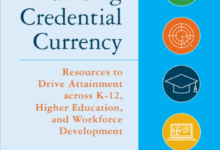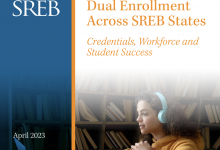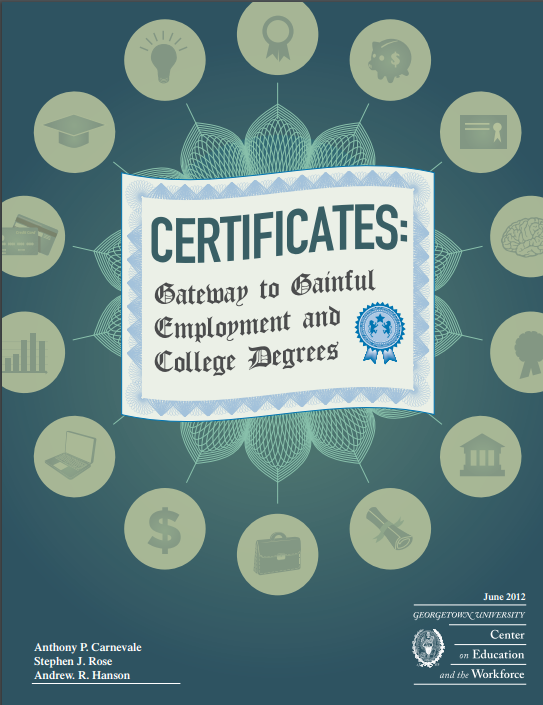Certificates, the second most common postsecondary award in the U.S., provide an on-ramp to college education and middle-class jobs for low-income, minority and immigrant Americans who are often the first in their families to attend college. In the context of concerns about rising college costs and student loan debt, certificates, which are cheaper and take less time to complete than college degrees, have become of increasing interest to researchers, institutions and other stakeholders in higher education.
This report by the Georgetown Center on Education and the Workforce (CEW) analyzes earnings by field of study, sex, race/ethnicity and program length, and finds that one of the most important factors that affects earnings is whether certificate holders work in the same occupational field they studied in. The report also analyzes the institutions that most commonly award certificates — such as community colleges and for-profit institutions — and the states where certificates are most prevalent and provide the highest earnings returns. This resource provides helpful data for policymakers seeking to learn more about postsecondary certificates.







